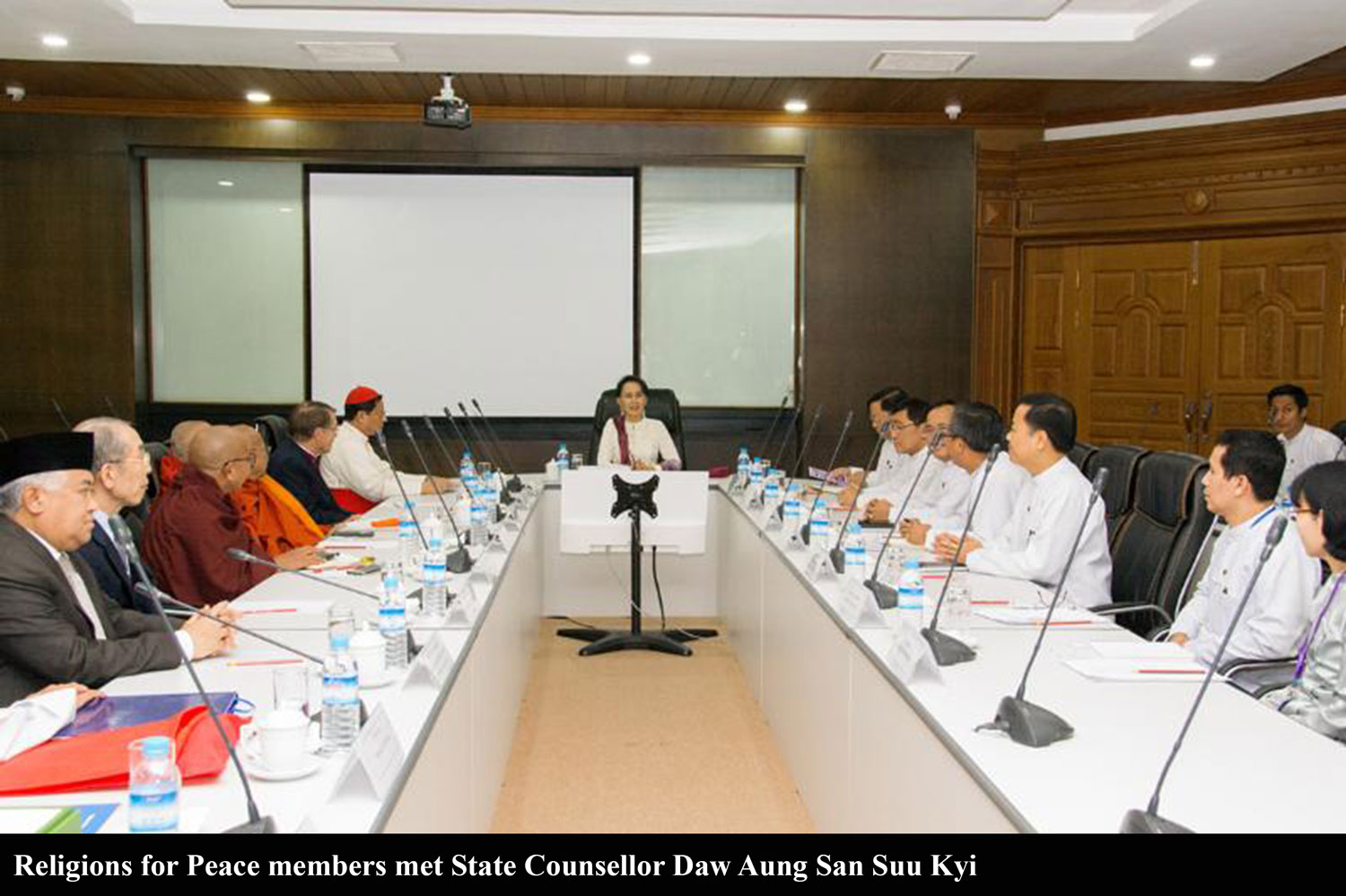MYANMAR (BURMA)
Multi-faith delegation urges investigation into crimes against ethnic groups
A delegation from the multi-faith group Religions for Peace visited Sittwe and Maungdaw in the north of Rakhine State. This troubled region has seen terrorist attacks by the Arakan Rohingya Salvation Army (ARSA) which is accused of massacring 100 Hindus and massive operations in retaliation by the security personnel on the area’s Muslim communities. There have also been attacks on other ethnic and religious minorities. As a result of the violence, 700,000 Muslims and hundreds of Hindus fled to Bangladesh.
The members of the national and international multi-faith delegation were:
- H.E. Cardinal Charles Bo – Archbishop of Yangon; Patron, Religions for Peace Myanmar
- U Myint Swe – President, Ratana Metta Organization; President, Religions for Peace Myanmar
- Al-Haj U Aye Lwin – Chief Convener, the Islamic Center of Myanmar; Founding Member, Religions for Peace Myanmar
- Rev. Father Joseph Maung Win – Head of the Office of Yangon Archdiocesan Commission for Ecumenism and Interfaith; Secretary General, Religions for Peace Myanmar
- Bishop Gunnar Stalsett – Bishop Emeritus of Oslo, Norway; Honorary President, Religions for Peace International
- Rev. Kyoichi Sugino – Deputy Secretary General, Religions for Peace International
The delegation was accompanied on the visit by the Union Minister for Religious Affairs, Chief Minister of Rakhine State, State Minister for Planning and Finance and senior officials from the Ministry of Foreign Affairs. Religions for Peace’s patron Cardinal Charles Bo spoke on behalf of the delegation and thanked the Union and local governments and the military for facilitating the visit.
During the visit, the delegation saw hundreds of burned and destroyed Muslim villages from the air and visited reception centres and transit camps. They also met with representatives of various ethnic and religious groups. Delegation members observed that the infrastructure to enable refugees to return from Bangladesh, such as reception centres and transit camps, was in place. Technical facilities, equipment, and staffing for essential procedures including health screening and identification had also been set up.
While acknowledging the authorities had a duty to maintain law and order, the delegation expressed concern that an excessive use of force could hamper the peace and reconciliation process. The delegation affirmed the relevance and urgency of the recommendations from the Advisory Commission on Rakhine State led by Mr Kofi Annan. They hoped that the agreement between the Myanmar government and the United Nations on the return of refugees from Bangladesh would soon be finalised.
In discussions with Union and Rakhine State government officials, Religions for Peace stressed the need to overcome the prevalent culture of fear and suspicion and to promote inter-communal harmony, irrespective of religion, ethnicity and citizenship. Having heard narratives of victims, the delegation urged the Union Government to conduct a thorough and transparent investigation into multiple crimes perpetrated in Rakhine State. This must include incidents affecting entire populations such as the Rakhine Muslims, Myo, That, Dynet, Khamee, Kamen and Hindus.
Before visiting Rakhine State, the Religions for Peace delegation met with State Counsellor Daw Aung San Suu Kyi in Nay Pyi Taw on 25 May. She welcomed the delegation’s offer of multi-religious solidarity and assistance for humanitarian response and peacebuilding in Rakhine State, as well as in other ethnic conflict situations
Religions for Peace is promoting initiatives to establish facts, restore rights of victims, and support social and political change. It is hoped that this will contribute to overcoming fear, hatred and intolerance in Rakhine State and other troubled regions of the country.
The first meeting of the Advisory Forum on the Advancement of Peace in Myanmar organised by Religions for Peace is scheduled to take place in October 2018. It will include representatives of the Myanmar government, the military, parliamentarians from ruling and opposition parties, UN agencies, ASEAN, ICRC, international NGOs, national NGOs, religious leaders, and experts.





